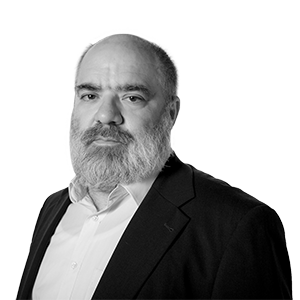

There are concepts that, despite having been coined just a few days ago, are used as if they had an immemorial history. Some become so successful that they are used left and right, and consequently, they end up being distorted. The concept of denialism It is part of those words that began as designating an ultra-specific fact but later became a kind of multipurpose insult or something even worse, as we will see later. In 1987, the French historian Henry Rousso created and developed the idea of denialism in the essay Vichy syndrome in the sense it has today. The concept referred specifically to the movement that at the time denied the reality of the Holocaust and Nazi crimes in general, both in France and other European countries. He distinguished denialism from what he called "legitimate historical revisionism," that is, a reasoned and critical rereading of history based on new data or perspectives. What exactly does this distinction mean? Claiming that the Vichy regime led by Marshal Pétain did not participate in the deportation of French Jews to the extermination camps is an extreme exercise in denialism, because there is thousands of pieces of documentary evidence to prove it. On the other hand, rethinking the figure of François Mitterrand, or even the resistance hero Jean Moulin, for example, based on documents and photographs that appeared very late, in the 1980s, represents a historical revision of France's true role during the Second World War, not a form of covert denialism. By the way, Rousso is also the author of the successful expression "a passé who passes does not" ("a past that does not happen").
A little later, in 1992, the magazine was born Continuum, the most influential of the British LGBTI community at the time. Based on the social constructionist theory queer, He argued that the HIV virus didn't exist and that AIDS was, in reality, an invention of the heteropatriarchy to blame this group. The magazine ceased publication in 2001 because all its editors died... of AIDS. This is another blatant case of denialism, this time with consequences for public health. This is not the same as highlighting the association between AIDS and poverty in Africa, for example, because it doesn't involve denying a set of evidence but simply highlighting a specific one.
Generally, denialism consists of rejecting explanations widely agreed upon by the scientific community, not ideological considerations, even when they are very popular. However, in recent times, the tendency has been to use the concept as a dialectical parapet to fortify ideas that are perfectly debatable, although thanks to this inertia, they can no longer be the subject of public debate. They can't even be nuanced. Thus, many positions that are presented as denunciations of various forms of denialism are, in reality, extreme forms of dogmatism camouflaged with the soft language of political correctness, argumentative alibis. Transforming a concept into a multipurpose insult is nothing new. In the United States of the 1950s, practically all political discussions ended abruptly when someone theatrically stated: "You say this because you're a communist!" In certain contexts, the term has today been replaced by fascistThis generalization would be merely a venial dialectical sin if it weren't for the fact that the concept designates disturbing things and is now being emptied of meaning.
In any case, the shining star of self-serving semantic abuse is currently related to the concept of denialism. Why is it so successful? Because it reinforces one's own ideological convictions while simultaneously stigmatizing those of others: when it comes to silencing someone without providing a single articulate argument, it's a steal! I insist, because I believe it must be done, that we are not talking here about scientific evidence (that would be denialism) but rather about simple ideological convictions disguised as scientific evidence (this has nothing to do with denialism). Real denialism must be firmly denounced because it is a dangerous distortion of reality. Then there is this new dogmatism based on inventing denialisms; it torpedoes decisive debates that should not be postponed. And with this, I return to the beginning of the article: the concept was born to provide rigor and clarify the terms of an important debate, not to hide it.
